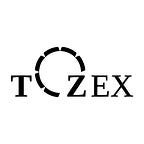Decentralized Finance: The Future of Crypto Is Here
Introduction
Smart contracts for ICOs were a huge hit. This novel way of raising money remained the main advantage of the blockchain for a very long time — the main advantage but not the only one. Today, a new revolution begins. It’s called “decentralized finance.”
Last spring, Forbes, a top business news and analysis magazine, called this sector a new dynamic that has brought great vigor to the cryptocurrency industry. DeFi really became a trend in 2019, and so far, its popularity has continued to grow at a breakneck pace. So, let’s take it piece by piece.
The Hot New Crypto Trend of 2020
Let’s make sure we are on the same page first. Decentralized finance includes digital assets, protocols, smart contracts, and DApps. Given the volume and design flexibility, the Ethereum blockchain platform is the main choice for applications. Nevertheless, it is the only platform developers can use. Think of DeFi as an open ecosystem where various small financial instruments and services can be created in a decentralized fashion. Because these apps are based on blocks, you can combine, modify, and integrate them to meet all your blasting needs. Just like Lego!
Because this sector is developing, exchanges like Binance have to figure out ways to go hand in hand with new ideas, like peer-to-peer finance. Changpeng Zhao, the founder and CEO of the world’s largest cryptocurrency exchange by trading volume, said that financial tools built on the groundbreaking technology are innovative, promising exercises. He believes investment in decentralized exchanges will not pose a problem for traditional platforms.
According to the Chinese Canadian business executive, the ecosystem of financial applications makes the crypto sphere seem much more attractive. For example, he is delighted with automatic market makers:
“In my opinion, DeFi is a really new approach that is to the benefit of people. When they mention decentralized finance, the first thing that comes to mind is lending. But now you are borrowing coins to provide liquidity. Its rising will make users trade more and simplify the process. One of the most interesting inventions of the modern age, automatic market makers, has appeared and I like it.”
Zhao also added that Binance strongly supports DeFi and develops numerous projects around this sphere.
At the same time, he has equal parts skepticism and wonder.
A great many projects here meet with failure, which is understandable given the fact that this is a relatively new field. If you invest in decentralized finance, mind his words:
“My point is, most of the DeFi projects will fail again and again and again. Well, they will actually, but that doesn’t mean the whole sector is bad. That just means only a few are bound to have tremendous success.”
The world’s leading blockchain and cryptocurrency infrastructure provider has invested a substantial amount of money in the open-finance movement and added various DeFi tokens to the exchange. Although the service wants to believe in a new breed of financial systems, Zhao notes that at the moment, the majority still choose to deal with centralized platforms. Binance will continue to offer products that enjoy demand among the users.
Factors That Contribute to the Success of DeFi
- Despite the numerous deterrents to the growth of the DeFi market (common to any young industry), some major trends allow the number of peer-to-peer finance followers to increase steadily.
- The unregulated nature of centralized crypto exchanges allows them to unilaterally change the rules of the game in their favor, especially at a bad time for players. Frozen withdrawals and man-made flash crashes (a sharp fall in a fixed asset price within the exchange’s accounting system, leading to instant liquidation of collateral positions) are the most prominent examples. They result in losses for traders in the range of hundreds of millions of dollars per month.
- The strengthening of KYC procedures reduces the ability of users of centralized resources to manage significant amounts of funds.
- Dark clouds are gathering over all exchanges of this type, leading to the understanding that large financial institutions (banks, stock exchanges) will buy or simply prohibit most of these online platforms in the not-too-distant future. That is why many CEXs (Balance, OKex, etc.) are developing decentralized analogs.
- With the tightening of banking standards, in terms of both money transfers and the usual storage of funds, more and more players from the traditional sector are turning to cryptocurrency. Why? To store funds outside of the banking infrastructure (and avoid backdated regulatory risks) and make fast international transfers with minimal fees.
Concluding Thoughts
If we look at the number of users, CEXs are still more popular, and we should continue to provide popular products. Changpeng Zhao believes that we have to focus on people and their preferences. Most of them prefer centralized sites for the time being — it is much easier to work with email and a password, as well as support services, than to make a backup copy of your keys and be scared of losing it. If we can make the key storage process as easy and straightforward as possible, then the future is DEXs, as the billionaire declared. His company will go on investing in revolutionary technology, as well as developing several projects.
Although digital assets are entirely decentralized, gaining access to them is only possible through centralized exchanges. Crucially, most crypto projects are managed by organizations that lack transparency and accountability. However, there’s hope that things could be different. The DeFi space is relatively small compared to traditional finance, but it is really taking off.
Thanks to a large number of crypto-centric projects and financial applications, we can expect a truly decentralized reality in which the traditional marketplace interacts perfectly with virtual currency and the blockchain.
